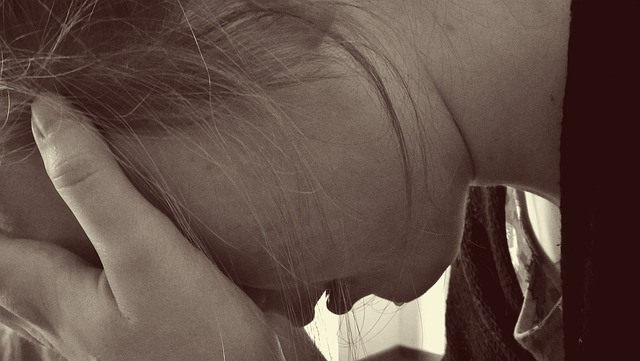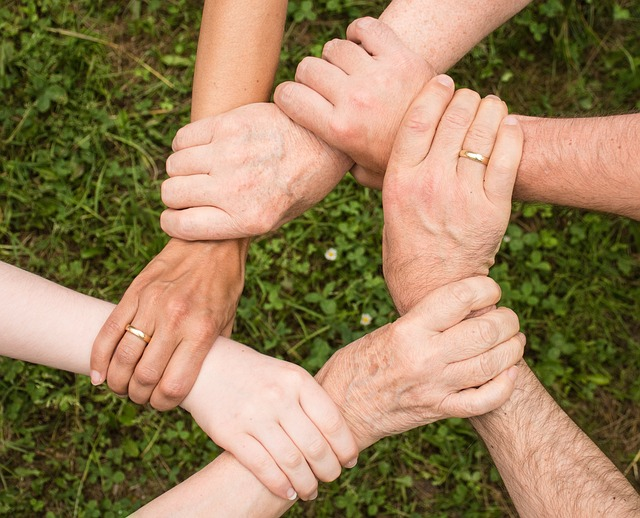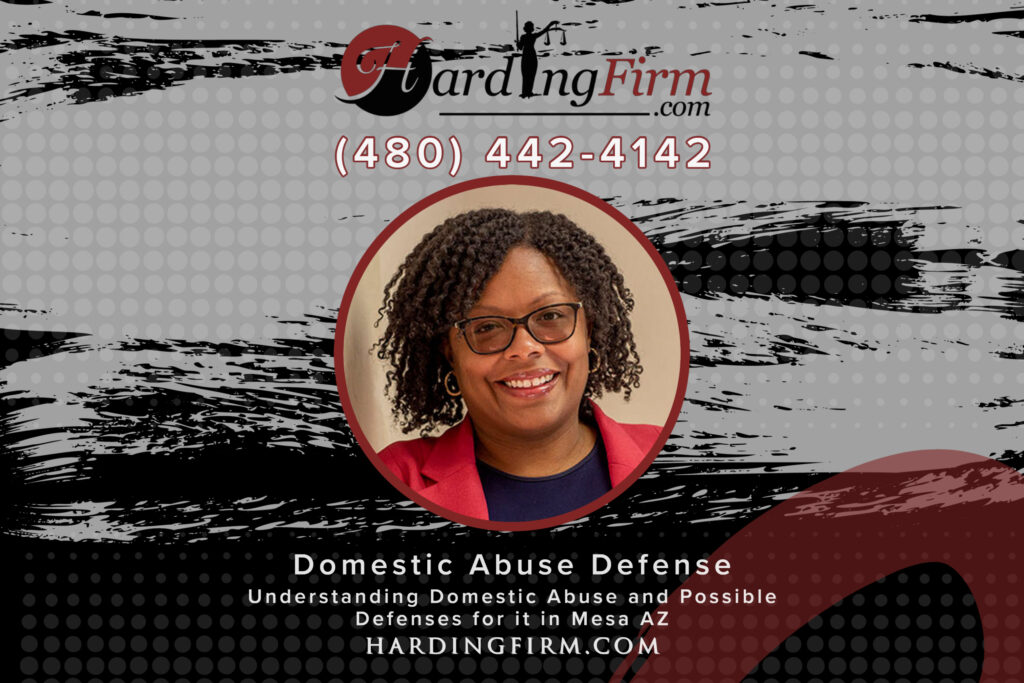Understanding Domestic Abuse and Possible Defenses for it in Mesa, AZ
Domestic abuse is a prevalent issue that affects people from all walks of life. In this blog post, we will explore the complex nature of domestic abuse, legal aspects in Mesa, Arizona, and how to support victims. Understanding the legal aspects of domestic abuse in Mesa, Arizona is crucial to protecting victims and creating a safer environment. It’s crucial to have knowledge of the legal aspects of domestic abuse in Mesa, Arizona, including the available defenses, to ensure the safety of those affected. Knowing the domestic abuse defenses in Mesa, Arizona is crucial to protecting victims and creating a safer environment. It’s important to have knowledge of the available defenses against domestic abuse in Mesa, Arizona, to ensure the safety of those affected.
Short Summary
- Recognize and seek help for domestic abuse in relationships.
- Identify abusive behaviors to support victims of domestic abuse.
- Understand legal options, build a defense strategy, and consult an attorney for navigating charges related to domestic violence in Mesa AZ.
Recognizing Domestic Abuse in Relationships

Domestic abuse is any attempt by an individual in a marriage or romantic relationship to assert control or dominance over their partner. It can take many forms, including physical, sexual, emotional, economic, psychological, or technological actions employed to gain power and control. It is important to recognize that individuals of any socioeconomic, ethnic, or racial group can be victims of domestic violence.
Abusers often exhibit violent and abusive behavior towards those closest to them, the individuals they profess to love. It is essential for victims to seek help in order to stop the abuse, as taking the initiative to reach out for assistance is a brave decision.
Help is always available. Reputable organizations such as the National Domestic Violence Hotline, the National Center for Victims of Crime, and Women’s Law.org provide the necessary support.
Types of Domestic Abuse
There are various types of domestic abuse, each with their own unique characteristics. Some common forms include physical abuse, which involves any intentional act resulting in injury or trauma to another individual; sexual abuse, which occurs when an individual is forced or manipulated by abusive partner into engaging in a sexual activity against their will; emotional abuse, which manipulates, subjugates, or isolates an individual through humiliation or intimidation; and economic abuse, where the perpetrator maintains complete control over the couple’s finances and closely monitors the victim’s access to and expenditure of money.
Understanding the different types of abuse can help identify and address the problem more effectively.
Identifying Abusive Behaviors
Recognizing abusive and controlling behavior can be challenging, as it can manifest in various ways. Common examples of abusive behaviors include intimidation, manipulation, humiliation, isolation, coercion, threats, and physical harm. These behaviors are intended to instill fear, control, and dependence in the victim.
Acknowledging that a relationship is abusive is the initial step to extricating oneself from such a situation. By identifying these behaviors, we can better support victims and help them escape the cycle of abuse.
Impact on Victims and Families

The impact of domestic abuse extends beyond the victim to their family, friends, and community. Children who are exposed to domestic violence on a regular basis are significantly impacted and are at an increased risk of developing physical and social issues. They may also learn to accept family violence itself as a normal way of life, increasing the likelihood of them becoming either victims or abusers in the future.
Victims themselves may suffer from emotional and psychological consequences, such as diminished self esteem-worth, anxiety, depression, and feelings of isolation. By understanding the far-reaching impact of domestic abuse, we can better support victims and their families.
Legal Aspects of Domestic Abuse in Mesa AZ

In Mesa, Arizona, domestic violence is a criminal offense, and victims have the right to pursue relief from the courts through protective orders, also known as injunctions against harassment or orders of protection. These orders can be issued against not only spouses but also other individuals involved in domestic violence cases.
Victims in Mesa, AZ have access to a variety of legal resources, including legal aid organizations, domestic violence shelters, and hotlines.
Laws and Regulations
Domestic violence laws in Mesa, AZ, are outlined in ARS 13-3601. Violation of this law may be classified as either a misdemeanor or felony, depending on the circumstances.
Victims may obtain an order of protection, which is a court-issued document that requires an individual to refrain from engaging in certain behaviors that may cause harm or threaten another person. Emotional abuse is also recognized as a criminal offense in Arizona.
Protective Orders
Protective orders serve as a legal measure to protect victims of domestic violence from further harm. These court-issued documents require the alleged abuser to refrain from engaging in certain behaviors that may cause harm or threaten the victim.
There are four most common types of protective orders: Domestic Violence Protection Order, Restraining Order, No Contact Order, and Anti-Harassment Order. It is important for victims to review the most current laws in their state regarding protective orders to ensure they are receiving the appropriate protection.
Legal Resources for Victims
Victims of domestic abuse in Mesa, AZ, can access a range of legal resources to help them navigate the legal system and protect their rights. These resources may include legal aid organizations, domestic violence shelters, hotlines, and assistance from the police, prosecutors, and the courts.
One such resource is A New Leaf’s 24-Hour Domestic Violence Hotline, which can be reached at (480) 890-3039 or 1-844-SAFEDVS. Utilizing these resources can provide victims with the support they need to escape abusive situations and seek justice.
The Cycle of Violence in Abusive Relationships

A key aspect of understanding abusive relationships is recognizing the cycle of violence, which is a pattern of violent behavior, that typically involves a cycle of tension building, an acute incident of abuse, and a period of reconciliation. This cycle may recur without intervention and helps explain the dynamics of abusive relationships.
By examining the individual phases of the cycle of intimate partner violence, we can gain a deeper understanding of the complexities involved in abusive relationships.
Tension Building Phase
The tension building phase is the initial stage of the cycle of violence. During this phase, the abuser may exhibit argumentative, angry, and coercive behaviors, as well as making threats or engaging in minor fights to assert power over the victim.
This stage can be emotionally draining for the victim, as they may feel a constant state of unease and apprehension. Recognizing this phase can be crucial in identifying an abusive relationship and seeking help.
Violent Episode Phase
The violent episode phase follows the tension building phase and is characterized by a major act of violence, which may include physical and/or sexual attacks, threats of harm, and verbal abuse. This is a risk period for injuries. The police may need to be notified.
The violent episode phase can be extremely dangerous for the victim, and it is crucial for them to seek help and support during this time.
Honeymoon Phase
The honeymoon phase is the final stage of the cycle of violence, in which the abuser may apologize, make promises of change, and display affection towards the victim. This peaceful phase may give the victim a sense of hope that the abuser has made changes, making it difficult for them to leave the relationship.
However, it is crucial to understand that without intervention, the cycle of violence is likely to continue, and the honeymoon phase is merely a temporary reprieve.
Overcoming Barriers to Leaving an Abusive Relationship

Leave an abusive relationship can be challenging due to various barriers that victims may face. These barriers may include fear and safety concerns, financial dependence, and cultural and social factors.
By understanding these obstacles and finding ways to overcome them, victims can empower themselves to break free from the cycle of abuse and seek the support they need to heal.
Fear and Safety Concerns
Fear and safety concerns play a significant role in preventing victims from leaving abusive relationships. Victims may fear for their safety, the safety of their children, financial insecurity, and potential retaliation from their abuser. To safeguard themselves and their loved ones, victims can develop a safety plan, obtain assistance from a domestic violence shelter, and obtain legal protection.
Utilizing available resources can help alleviate fear and safety concerns and provide the support needed to leave an abusive relationship.
Financial Dependence
Financial dependence is a common barrier in abusive relationships, as the victim may be reliant on the abuser for financial assistance. Economic abuse, which involves controlling a person’s ability to acquire, use, and maintain financial resources, can further exacerbate this dependence.
However, there are resources available for individuals affected by financial dependence, such as legal aid, financial counseling, and support groups, as well as organizations that offer assistance with job training, housing, and other resources.
Cultural and Social Factors
Cultural and social factors can also create barriers for victims trying to leave an abusive relationship. Stigma, shame, and fear of judgement from family members, and community can make it difficult for victims to seek help and support.
Additionally, cultural differences and sexual orientation may present further challenges for those seeking to exit abusive relationships. By acknowledging and addressing these factors, we can better support victims in overcoming these barriers and seeking safety.
Supporting Victims of Domestic Abuse

Supporting victims of domestic abuse is crucial in helping them overcome the barriers they face and find safety and healing. This support may involve recognizing signs of abuse, offering support and assistance, and providing resources for help.
By being proactive and empathetic, we can make a difference in the lives of those affected by witnessing domestic violence and abuse.
Recognizing Signs of Abuse
To support victims of domestic abuse, it is essential to recognize the signs of abuse in others. These signs may include emotional or sexual contact, physical abuse, depression, feeling drained, scared, ashamed, and confused.
By recognizing these signs, we can better understand the experiences of victims and provide them with the support and resources they need to leave their abusive relationships.
Offering Support and Assistance
If you suspect someone you know is being abused, it is important to approach them in a safe and confidential manner and offer your support. Let them know they are not alone, and provide resources that may be helpful, such as local organizations, hotlines, and counseling services. Encourage the victim to reach out to community resources and offer to accompany them if necessary.
Your support can make a significant difference in their journey towards safety and healing.
Resources for Help
There are various resources available for victims of domestic abuse, including hotlines, emergency shelters, legal advocacy, counseling services, and community-based advocacy programs. The National Domestic Violence Hotline is a great resource. They can be contacted on 1-800-799-7233 (SAFE).
By connecting victims with these resources, we can help them access the support and assistance they need to escape abusive situations and begin the process of healing.
Domestic Abuse Defenses: Legal Options and Strategies

For those facing domestic abuse charges, it is crucial to understand the legal options and strategies available to them. Engaging an experienced attorney and building a strong defense can make a significant difference in the outcome of a domestic abuse case.
This section will discuss the various aspects of domestic abuse defenses, including understanding the charges, building a defense strategy, and working with an attorney.
Understanding the Charges
Domestic abuse charges in Mesa, AZ, can vary according to the severity of the abuse and the applicable state laws. Possible charges may include unsupervised probation, counseling, and diversion programs.
It is important to understand the specific charges you are facing and the potential repercussions, including incarceration, monetary fines, and other sanctions.
Building a Defense Strategy
In defending against domestic abuse charges, one may consider various strategies, such as arguing that the violence never occurred, engaging the services of a defense attorney, or employing common defense strategies such as self-defense or false accusations. Ultimately, the most suitable strategy will be contingent upon the particulars of the case.
Engaging an experienced criminal defense lawyer can afford you the opportunity to gain insight into the charges against you, traverse the legal system, and assemble a robust defense.
Working with an The Harding Firm for Your Domestic Abuse Case
Engaging an attorney for a domestic abuse case can aid in reducing the repercussions of the accusations, safeguarding the rights of the victim, maintaining information confidential, and aiding victims in recovering costs. When choosing an attorney, it is essential to evaluate their expertise and proficiency in the area of domestic abuse law, as well as their capacity to provide a solid defense.
Furthermore, it is critical to consider the attorney’s fees and payment options. By working with an experienced attorney, you can ensure the best possible outcome for your domestic abuse case.
Summary
Domestic abuse is a complex issue that affects countless individuals and families. By understanding the various types of abuse, recognizing the signs, and knowing how to support victims, we can make a significant difference in the lives of those affected. Additionally, understanding the legal aspects of domestic abuse and the resources available for both victims and those facing charges is crucial in navigating the legal system and seeking justice. Together, we can work towards creating a safer and more supportive environment for all.
Frequently Asked Questions
What does domestic mean in abuse?
Domestic abuse is a pattern of controlling, coercive, threatening, degrading and violent behaviour, typically perpetrated by an intimate partner or family member, in an effort to gain power and control over the other person.
Domestic violence can take many forms, including physical violence, emotional, economic, and psychological abuse.
Who are the main victims of domestic?
Domestic violence can take many forms, including physical abuse, sexual abuse, emotional abuse, economic abuse, stalking, cyberstalking, and psychological terror.
Unfortunately, women are disproportionately the victims of domestic violence. Men can also be victims of domestic violence, but they tend to face fewer risks than women.
What is the crime of domestic?
Domestic crime is a serious issue that needs to be addressed. It includes incidents of violence or threats of violence inflicted by current or former intimate partners,, spouses, or cohabitants. It can leave victims feeling scared, unsafe, and emotionally distressed.
Victims of domestic crime often feel powerless and unable to escape the situation. They may be too scared to report the crime or seek help. It is.
What did you mean by domestic violence?
Domestic violence is a serious issue that affects individuals and families in our society. It can take the form of physical, emotional, verbal, financial, sexual, or spiritual abuse. These abusive acts are used as a means to gain and maintain control and power over one’s partner.
By bringing attention to this problem, we can work together to stop domestic violence.


